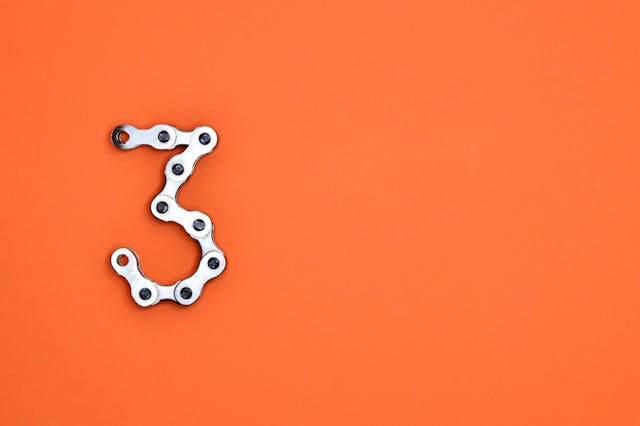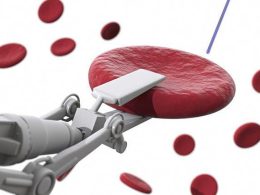Kidney disease can quietly affect your body for years without showing obvious symptoms. That’s why it’s often called a silent condition. Many people don’t know something is wrong until serious damage has already happened. So, how can you tell if your kidneys need help?
Well, there are some early signs your body may give you. Paying attention to these signs can lead to faster diagnosis and better care. In this blog, we’ll explore three of the most common early warning signs of kidney disease. We’ll also explain what they mean, why they happen, and when you should act. When problems occur in kidney disease, your body often sends signals, you just need to know what to look for.
Why Early Detection Can Change Everything
Your kidneys do a lot more than you may think. They filter out waste, control your blood pressure, and balance important minerals. When they stop working well, many parts of your body feel the impact.
Unfortunately, kidney disease usually develops slowly. That means the symptoms might not seem serious at first. You may even mistake them for signs of aging or stress. However, catching the problem early can prevent serious damage later.
Moreover, early care often includes simple steps like lifestyle changes or basic medication. These can slow the disease and help protect your health. That’s why it matters to know the warning signs early on.
Warning Sign #1: Changes in Urination
One of the first places kidney trouble shows up is in your urine. That makes sense, since your kidneys control how waste leaves the body. Any change in your usual bathroom habits might signal that something is wrong.
These are some common signs to watch for:
- You need to urinate more often, especially at night
- Your urine looks foamy, cloudy, or bubbly
- You see blood in the urine
- Your urine becomes very dark or very light
- You feel pressure or pain while urinating
Furthermore, some people feel the urge to urinate but pass only a small amount. Others may stop urinating as much as usual. These symptoms happen when your kidneys can’t properly remove waste or balance fluids.
As a result, the body may retain toxins or let important proteins escape through urine. That’s why foamy urine often means excess protein loss.
Therefore, if your bathroom habits change suddenly or feel strange, it’s worth talking to a doctor. Even if it feels minor, these early signs help detect kidney issues before they get worse.
Warning Sign #2: Swelling in Hands, Feet, or Face
Another clear sign your kidneys may need help is swelling in certain parts of your body. Your kidneys help manage salt and fluid balance. When they slow down, fluid can build up where it shouldn’t.
Swelling, also called edema, usually starts in the:
- Ankles and feet
- Hands and wrists
- Around the eyes, especially in the morning
Moreover, this swelling often feels puffy or soft to the touch. It may leave an imprint if you press down gently with your finger. In some people, shoes or rings may feel tighter than usual.
Additionally, swelling doesn’t always hurt, which is why many people ignore it at first. But it’s a strong sign that the body isn’t getting rid of fluids properly. In kidney disease, the blood protein level may drop. This allows fluid to move into the tissues, causing puffiness.
Lastly, this type of swelling often comes and goes. However, if it becomes frequent or gets worse over time, you should bring it up with your doctor. It could be your body’s way of asking for help.
Also read: What Are the Symptoms of Worsening Kidney Disease? Awareness Post
Warning Sign #3: Feeling Tired or Weak for No Clear Reason
Fatigue happens for many reasons, but one of the most overlooked causes is kidney disease. When your kidneys don’t work well, waste builds up in your blood. That affects how your body works — and how you feel every day.
People with early kidney issues often say they feel:
- Tired all the time
- Weak, even after sleeping well
- Short of breath with light activity
- Trouble focusing or staying alert
Moreover, low kidney function can lead to anemia. That means your blood carries less oxygen than it should. Less oxygen means your muscles and brain don’t get the fuel they need. As a result, you feel more drained and foggy throughout the day.
Additionally, this tired feeling may get worse as the day goes on. You might struggle to get through normal activities that once felt easy. Some people assume it’s just stress or lack of sleep, but it could point to a deeper issue.
Therefore, if you feel tired for no clear reason and rest doesn’t help, consider asking your doctor for a kidney check.
What to Do If You Notice These Symptoms
It’s easy to overlook signs when life gets busy. But ignoring them may cost you in the long run. The sooner you act, the more options you have to protect your health.
If you’ve noticed any of these three symptoms, here are a few simple steps:
- Write down what you’re feeling and when it started
- Track your symptoms over a few days or weeks
- Schedule a visit with your healthcare provider
- Ask for a basic kidney function test (blood and urine)
Moreover, keep in mind that many kidney problems don’t cause pain in the beginning. That’s why symptoms like tiredness or swelling should never be ignored. With early action, many kidney issues can be managed or slowed down.
Are You at Higher Risk? Here’s Who Should Watch More Closely
Not everyone has the same level of risk. Some people may need to pay extra attention to their kidney health because of other conditions or habits.
You may be more at risk if you:
- Have high blood pressure
- Have diabetes or prediabetes
- Take painkillers often, especially NSAIDs
- Have a family history of kidney disease
- Are over age 60
- Smoke or live with heart problems
Moreover, if you belong to one of these groups, you should consider regular checkups. A few basic tests can catch signs early. Prevention is much easier than treatment.
Therefore, knowing your risk level helps you stay one step ahead. It also makes you more likely to catch symptoms while they are still easy to manage.
Conclusion:
Kidney disease doesn’t always come with loud warnings. However, your body often gives you small clues if you know what to look for. The three main signs to watch are changes in urination, swelling in your body, and constant fatigue. Each of these signs points to how your kidneys are handling waste and fluids. They may seem harmless at first, but they often show up before things get serious.
Moreover, if you act early, you give yourself more options. A quick test, a few healthy changes, or early medication can stop the condition from getting worse. That’s why it’s important to listen to your body and respond quickly. If you’ve seen one or more of these signs, don’t brush them off. Talk to your doctor and get checked.
And if you’re looking to be part of something bigger, participate in active trials at Koch Research and contribute to better care for people living with kidney disease. You might help others while learning more about your own health too.












